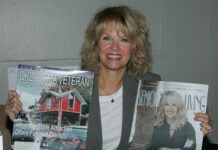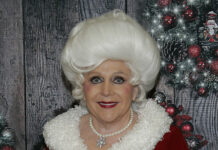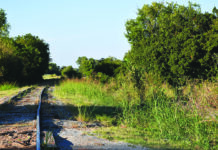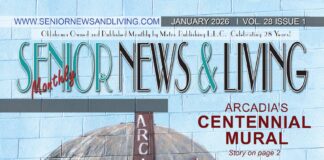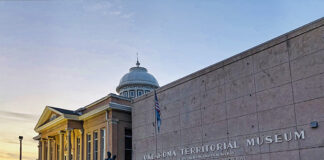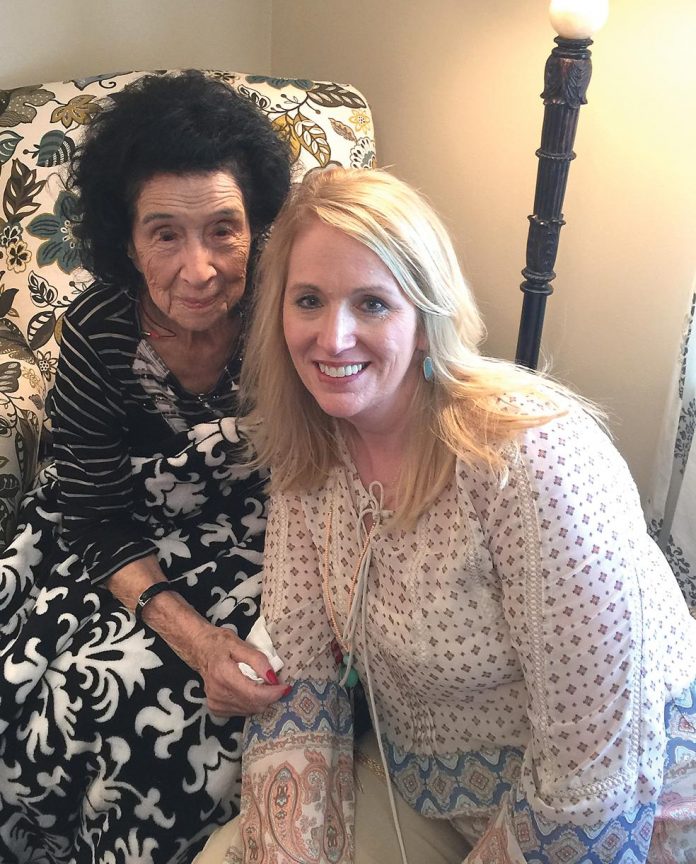
by Bobby Anderson
Staff Writer
What started with an email from a 15-year-old high school sophomore in New Jersey has turned into Oklahoma seniors recording their history for future generations.
Melissa Holland serves as the executive director of the Oklahoma Assisted Living Association. An email from Michael Naya, Jr., showed up in Holland’s inbox a few months ago.
“He was interested in history and was having problems finding people who were Dust Bowl survivors,” Holland said of Naya’s project. “He asked if I could reach out to our membership.”
Holland mentioned each spring OKALA recognizes those over 100-years-old. A friend at the Oklahoma State Department of Health mentioned those who witnessed the Land Run might be a good source of information.
Veterans of the Korean War and World War II survivors might also be a good source of information.
With her head swirling with ideas Holland got back to Naya and the two hammered out an informational survey OKALA could send to each member’s Activity/Engagement Coordinator.
“He’s such a great kid,” Holland said of Naya. “It does give you hope in future generations.
“I’ve always told my children seniors are living history books,” she said. “And we need to document that.”
Holland said the goal is to publish the returned information in a book form.
The Oklahoma Assisted Living Association is a non-profit organization dedicated to the preservation of dignity and choice for older Oklahomans and to the quality of their care in the senior living setting.
Naya said it was a school project that struck up his curiosity and led him to contact Holland.
“Well, I have always been interested in history starting when I was very young,” Naya said. “I enjoyed reading about the Titanic and events from that era as it was interesting. From there, I learned about World War II veterans, Great Depression and Dust Bowl survivors and decided to start finding and interviewing living witnesses from these historical events.
“The responses from these witnesses have been great; most are willing to share their memories.”
Naya’s goal is to collect enough responses to one day write a book.
“They hold a great deal of knowledge and it’s amazing to interview them in any way possible,” he said.
Holland has more and more stories to share as time passes.
“We get some really interesting responses,” Holland laughed.
One resident survived the Dust Bowl.
She recounted those days in her responses.
“There were terrible dust storms that were so bad you couldn’t drive. You just had to stop and wait till it was over,” she remembered.
The same resident also lived through the Great Depression.
“It was terrible. We didn’t have any money and couldn’t find work,” she said.
She remembered how many of her classmates struggled during those times. Her parents didn’t lose their jobs because they farmed.
The end of the Depression was a miraculous event.
Another resident responded to the call for 100-year-old stories.
Lois Wooten was born in 1914 and just turned 104.
“When I was a child the world was much safer,” Wooten said. “We did not have locks on our doors. In the summer we would sleep out in the back yard because it was so hot and we didn’t have electricity. We didn’t have running water in the house. We had a well just outside of our back porch.
“We had an outhouse instead of an indoor bathroom.”
Things were much slower back then. Wooten remarked how much has changed.
“We didn’t get the news within five minutes of when it happened,” she said. “Communication of world events was over the radio and we didn’t have one of those for a long time.
“I think people visited with their neighbors more. We made most of our own clothes. It was a slower time for sure – no fast food places, no ATM machines.”
Wooten’s age has brought her plenty of attention.
“I am enjoying many things because I’m this old,” she said, noting she’s had a lot of interview requests and has been contacted by researchers. “There have been so many changes.
Who would have thought we would have gone to the moon or astronauts would live on a space station.” While she admits the current technology “boggles my mind” she regularly uses a computer, an iPad and an iPhone, which she uses to text her family.
If you would like to find out more information or participate in the project you can contact Holland at 405-235-5000 or email her at [email protected].





